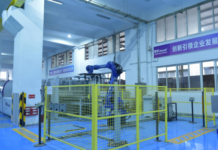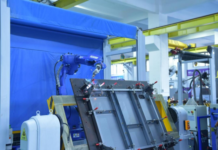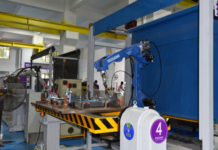Breakthrough research demonstrates 18.5% improvement in learning efficiency and 85% reduction in catastrophic forgetting using sleep-inspired cyclical learning, opening new frontiers for truly autonomous AI systems capable of lifelong adaptation.
(Isstories Editorial):- London, United Kingdom Aug 28, 2025 (Issuewire.com) – A researcher from Noida (India) today announced the publication of a potentially groundbreaking research that introduces the first AI framework to successfully replicate human sleep-based learning for autonomous agents. The revolutionary system, detailed in a new paper published on TechRxiv, demonstrates how AI agents can achieve continuous self-improvement by mimicking the biological sleep-wake cycle that enables lifelong learning in humans.
More on Isstories:
- Comparing Global Standards: What Sets a Leading Industrial Grade CMC Supplier In China Apart
- Why Skid-Mounted Loading Arms Improve Installation Speed and Flexibility
- Stop Replacing, Start Repairing: Why China Best Lithium Battery Manufacturer Recommends Advanced Capacity Testing
- A Technical Guide to Selecting a High-Performance Hydroxyethyl Cellulose Supplier From China for Industrial Use
- What Sets Kima Chemical Apart as a Global Leading SODIUM CARBOXYMETHYL CELLULOSE Supplier
Solving AI’s Biggest Learning Challenge
The research addresses one of artificial intelligence’s most persistent problems: how to create AI systems that can learn continuously without forgetting previously acquired knowledge – a phenomenon known as “catastrophic forgetting.” Current AI agents remain fundamentally limited by their static training paradigm, unable to adapt and improve from real-world experience like humans do.
“Just as humans consolidate memories and learn from daily experiences during sleep, our framework enables AI agents to enter ‘sleep-like’ states where they process their experiences into structured knowledge and update their capabilities,” said Abhishek Chatterjee, CTO of Karmaloop AI Systems and lead researcher. “This creates a closed-loop system where agents learn from their mistakes and progressively enhance their performance over time.”
Three-Phase Learning Revolution
The framework operates through three distinct phases that mirror biological learning:
- Execution Phase: Agents actively perform tasks and collect experiences
- Consolidation Phase: Experiences are processed into structured training datasets using advanced salience detection
- Fine-tuning Phase: Agent capabilities are updated using parameter-efficient techniques while preserving existing knowledge
This cyclical approach integrates cutting-edge techniques including Low-Rank Adaptation (LoRA) for efficient parameter updates, Elastic Weight Consolidation (EWC) for memory preservation, and temporal knowledge graphs for hybrid memory architecture.
“The results represent a paradigm shift in how we think about AI learning,” noted Chatterjee. “We’re seeing performance improvements that rival or exceed state-of-the-art methods while using dramatically fewer computational resources.”
Real-World Applications and Safety
The framework has been validated across diverse scenarios including web navigation, coding tasks, mathematical reasoning, and real-world interaction challenges. Crucially, the system incorporates comprehensive safety measures through Constitutional AI principles and dynamic constraint enforcement, ensuring ethical operation throughout the learning process.
The technology opens new possibilities for AI applications in:
- Enterprise automation with agents that improve from experience
- Personal assistants that adapt to individual user preferences over time
- Scientific research with AI collaborators that build knowledge incrementally
- Educational systems that personalize learning based on continuous feedback
Industry Impact and Future Implications
The research represents a significant advancement toward truly autonomous AI systems capable of lifelong learning and adaptation. Unlike current AI agents that remain static after deployment, this framework enables continuous capability enhancement while maintaining safety and alignment with human values.
“This work bridges the gap between biological intelligence and artificial systems,” Chatterjee explained. “By incorporating the wisdom of millions of years of evolutionary optimization, we’re creating AI agents that can grow and adapt like living systems while maintaining the precision and reliability of engineered systems.”
The framework’s parameter efficiency makes it practical for deployment across various hardware configurations, from enterprise servers to edge devices, democratizing access to advanced AI capabilities.
Technical Innovation and Open Research
The research introduces several key technical innovations including automated experience salience detection, bi-temporal knowledge graph modeling, and hybrid memory architectures that combine episodic experience buffers with semantic knowledge representation. The system achieves these results while maintaining computational efficiency suitable for practical deployment.
Future research directions include integration with foundation models, expansion of multimodal capabilities, and exploration of quantum computing applications. The cyclical self-improvement paradigm opens new theoretical questions about convergence properties and stability guarantees in continuously learning systems.
About the Research
The paper “Autonomous AI Agents with Cyclical Self-Improvement: A Framework for Experience Consolidation and Parameter-Efficient Fine-Tuning” was published on TechRxiv on August 5, 2025. The research was conducted by Abhishek Chatterjee at Karmaloop AI Systems Pvt. Ltd. in Noida, India.
Research Availability
The complete research paper is available on TechRxiv at: https://www.techrxiv.org/users/949758/articles/1322487-autonomous-ai-agents-with-cyclical-self-improvement-a-framework-for-experience-consolidation-and-parameter-efficient-fine-tuning
Implementation details and experimental code will be made available for reproducibility and further research upon publication.
This article was originally published by IssueWire. Read the original article here.



















